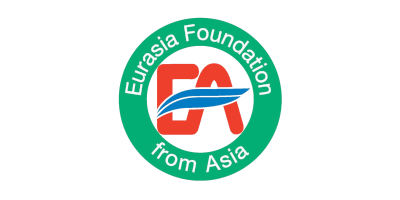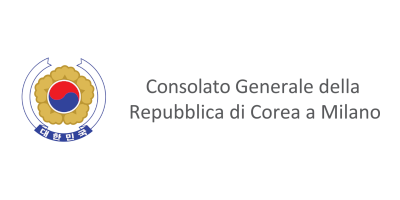Korean Studies Lecture Series
"Vernacularity and Women between Asia and Europe" - 2024
Following the success of the first edition (2023) of a series of lectures dedicated to 'The contribution of Vernaculars to the rise of new cultural participation in Europe and Asia' it was decided to propose a second edition by the title "Vernacularity and Women Between Asia and Europe". In Korea, as well as in many other countries in East Asia and in the West, the question of women literacy has been a noteworthy subject of research. Since decades scholars and experts have tried to define literacy, in the educational, cultural and sociological fields. Here it will be understood as 'access to broader knowledge' and as 'capacity to produce more knowledge'. The concepts of 'Vernacularity' and 'vernaculars' are closely related to 'literacy' and to 'literacy achievement', but they also go beyond the limits of 'literacy' (meant as the ability to read and write) and have a direct impact and influence on the exchange and understanding of knowledge, ideas, and on the creation of new cultural 'products' in various societies, various language environments and different regions of the world. Several scholars and experts on Asia and Europe will intervene in the field of 'vernacularity and women' with the purpose of highlighting how women in different cultures have been enriched by the rise of vernaculars over a superimposed - often foreign - and 'dominant' language. Through the research of Asian and European specialists in the field we will observe how women in several countries have reacted to the onset of vernaculars and how these vernaculars have changed their daily lives.
Etimology and terminological variations
The term ʻvernacularityʼ and its semantic variations ʻvernacular/vernacularism/vernacularizationʼ derive from the Latin ʻvernaculusʼ (native), used by the classical Latin grammarian Marcus Terentius Varro (ʻvocabula vernaculaʼ), to identify "vocabulary of the national language” in opposition to ʻwords/vocabulary of foreign originʼ.
This term has been used in various research fields, but today we will concentrate on the following: General linguistics, where the concept of ʻvernacular languageʼ is used in contrast to ʻlingua francaʼ (a language understood by many peoples/groups of people who speak different and mutually unintelligible ʻvernacular languagesʼ.
A good example of the relation between Latin, the lingua franca in Europe for long centuries after the fall of the Roman Empire, and the various vernaculars in which new literature is composed (Divina Commedia in Italy, Cantar de Mio Cid in Spain, The Song of Roland in France, just to name a few).
In Europe the process of vernacularization has been fostered by Protestantism and the consequent need for Bible translation. Analogously, in Korea and East Asia, the same function has been played by Buddhism (Mair, 1994). Dynamics similar to the relationship between Latin/Vernaculars in Europe, can also be found in the cases of Sanskrit, Arabic and Chinese (or Sinographic sphere), where the ongoing scholarly debate is very lively and active.
The term ʻvernacularʼ has also been understood in a diglossia situation, where two languages and two different usages exist, the language H (high) and the language L (Low) (Ferguson 1959); often the H corresponds to the literary language and the L is indeed the spoken language.
In literary history/literary studies, the debate has concentrated on the implications of vernacularization intended in a broad sense as a process of ʻknowledge transferʼ among national or group- characterized cultures. Here the term ʻvernacularization/vernacularityʼ will be used according to its implications on ʻaccess/distribution/production of knowledgeʼ.
Other than presenting various realities connected to the realm of ʻvernacularʼ in each country tackled within the special lectures, we will try to propose, if necessary, a new definition of this process of ʻcultural empowermentʼ, also in consideration of the effects of vernacularization on the transfer and direct participation to the fruition/production of culture, by groups of people previously excluded. In the case of Europe, vernacularization meant as of knowledge transfer can be interpreted in two directions: as a process ʻtop-downʼ - of utilitarian service to the homeland - from Cicero (Greece-Rome) to Dante Alighieri (Roman and Provencal culture to Italy), Du Bellay (Roman and Italian culture to France), but also by a process ʻbottom-upʼ, originated by the desire to see one's own land to be included in the hierarchy of "enlightened" nations (Woegerbauer, 2008).
The latter is especially the case within the Sinocentric sphere, where Literary Chinese gives origin to Literary Sinitic, which allows Korea, Japan and other regional cultures to be included under Chinaʼs direct influence. Today we are witnessing a contradicting tendency in Europe, where some forces tend to press for an exit (see the recent Brexit), whereas in Asia we assist in a push for a common system along the Silk Road. China and Korea are particularly interested in this project and are very active in promoting it. With the Russian invasion of Ukraine the balance between East and West (Europe and Asia) has been put under attack. How can a clash of cultures be normalized and brought back into an environment based on reciprocal recognition and close cooperation? Perhaps research in the field of humanities can show us what the common points are, where they stand, and show us some of the possible futures standing in front of us.
The proposed project aims at opening up a communication thread and a comparison among the debates happening in different language/cultural areas, hence the involvement of scholars from Europe and Asia, who in their presentations will deal with aspects and effects of vernacularization in Italy and Europe, India, Vietnam, China, Korea and Japan, highlighting different approaches and common solutions. Vernacularity has fostered a broader participation within the cultural sphere, in every country and every region we have observed it. Could the broad and active participation into the making of cultures ‒ as shown by the push created by vernacularity ‒ serve as an example for a major and better cooperation of all the forces involved, to harmoniously participate in inclusive cultural ideas? At the end of the series of Special Lectures we will try to give an answer to this question. By better understanding how single areas have tackled the question of ʻvernacularityʼ we will have more and better instruments to propose possible solutions for a better future for all.






